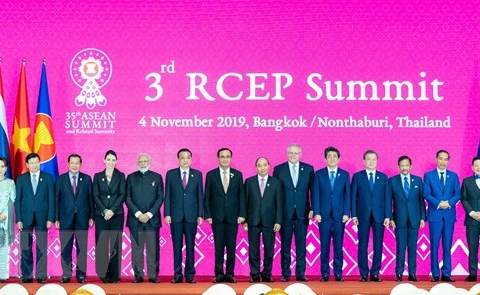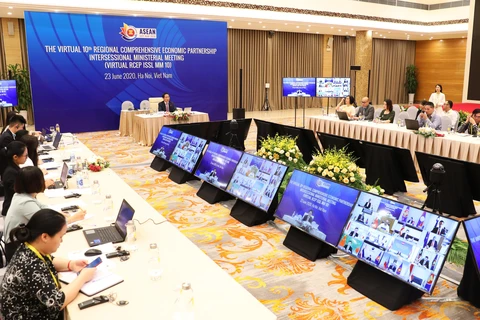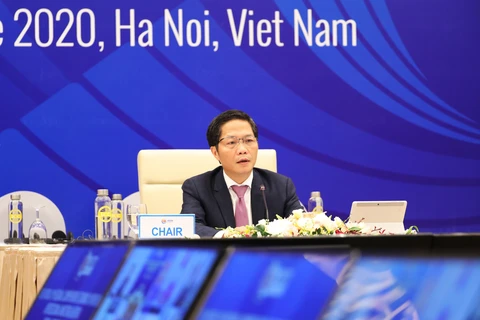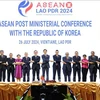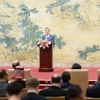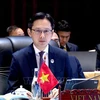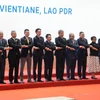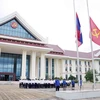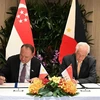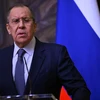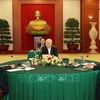 Chheang Vannarith (L), President of the Phnom Penh-based Asian Vision Institute, at a recent workshop on Cambodia's foreign policy (Photo: VNA)
Chheang Vannarith (L), President of the Phnom Penh-based Asian Vision Institute, at a recent workshop on Cambodia's foreign policy (Photo: VNA) Phnom Penh (VNA) – A Cambodia-based expert has highly valued Vietnam’s efforts to promote negotiations on the Regional Comprehensive Economic Partnership (RCEP).
Initiated by ASEAN in 2012, the RCEP is a free trade agreement among the ten member countries of the bloc and six partners – China, India, Japan, the Republic of Korea, Australia, and New Zealand.
Fifteen countries, excluding India, reached an agreement on the deal in November 2019.
In an interview with the Vietnam News Agency following the online 10th RCEP Intersessional Ministerial Meeting chaired by Vietnamese Minister of Industry and Trade Tran Tuan Anh on June 23, Chheang Vannarith, President of the Phnom Penh-based Asian Vision Institute, said during its ASEAN Chairmanship this year, Vietnam has been effectively coordinating and promoting negotiations so as to reach consensus and finalise the talks although India opted out of the deal at the last minute.
He held that as the regional economy has been seriously devastated by the COVID-19 pandemic, it is necessary to have a mechanism for more intensive regional integration to swiftly recover economies via promoting trade and investment.
The RCEP will be a useful tool to bolster trade and investment in the region, according to Vannarith.
Stressing the importance of this agreement in the post-COVID-19 period, he said the RCEP will help member countries take part in the reform of global supply chains once the pandemic is brought under control.
The finalisation of the RCEP talks will also send out a clear message that Asian economies do not accept unilateralism or trade protectionism, he added.
At the online meeting on June 23, trade ministers of the 15 countries re-affirmed that the RCEP will be signed by the end of this year, in November, but they still let the agreement open for India to return.
Boosting communications and enhancing the public’s trust in the deal’s sustainability is of critical importance at present, the expert said, noting that existing barriers to the RCEP signing now are related to political issues.
He suggested leaders of the member economies give thorough explanations of the benefits as well as challenges generated by this agreement to their people.
The persuasion of people is the decisive factor to the success of the RCEP, Vannarith said.
Once signed, the RCEP will create one of the largest economic blocs in the world as the 15 countries will account for an estimated 30 percent of the global population and nearly 30 percent of the world’s GDP./.
VNA
